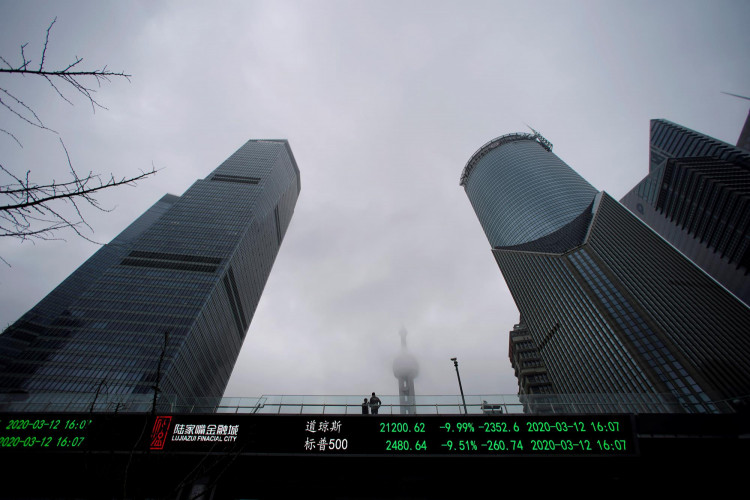US stocks plummeted early Friday to cap the sessions and week sharply lower for assets deemed risky as Florida and Texas were forced to pull back on COVID-19 lockout reopening plans in the wake of a record number of new cases registered around the country.
The Dow Jones Industrial dropped 730 points, -2.42 percent, or 2.8 percent, at about 25,015, marking the index's steepest decline since June 11. The banking, leisure, travel, and consumer spending-oriented shares took a heavy beating in the stock market as Wall Street investors have their eye on Texas' decision to stop the reopening of its economy.
During mid-afternoon sessions, the Dow Jones dipped more than 700 points, or 2.4 percent, and traded near a trading low of 25,055. Plunging shares outmatched the rising ones by a 5 to 1 difference on the New York Stock Exchange. On the Nasdaq, decliners surpassed advancers by over a 4 to 1 margin.
Financial markets paced the decline as investors responded to the decision of the Federal Reserve to curb dividends and suspend stock-buybacks until at least Sept. 30 against the so-called Volcker Rule's easing.
The law, named for ex-central bank chief Paul Volcker and implemented during the financial crisis of 2008, barred the banks on their own accounts from risky trades. Easing it will boost their incomes. Meanwhile, restricting payouts to creditors would conserve capital as borrowers are facing the worst downturn since the Great Depression.
Lenders were among the weakest performers after the results of the Federal Reserve's stress test on Thursday. Though the US financial institutions got a clean slate of health from the Fed, they will be mandated to further boost their capital to safeguard themselves against declines and preserve their capacity to lend to the nation's hard-hit businesses.
Nike and fellow Dow 30 components JPMorgan Chase and Goldman Sachs led the downside. The athletic and apparel giant posted a shock net loss of 51 cents per share in the fiscal fourth quarter as revenues crashed 38 percent to $6.31 billion.
Energy companies also dropped on worries about weak demand connected to the ongoing global health scare. The tech-heavy Nasdaq plunged 2.6 pressured by social network giant Facebook which dropped as more big stocks including Verizon and Unilever bared plans to stop advertising on the platform until Facebook can control hate speech.
Meanwhile, economic data again pointed at some spots of concern in the US' long path to economic revival late Friday. The Bureau of Economic Analysis said that consumer spending climbed back up last month, but Americans' income fell sharply as government payouts fell.




